Study Shows Women Sleep Better Next to a Dog Than with a Man
Last updated on
It’s a headline that captured a feeling many women know well: “Women Sleep Better Next to a Dog Than with a Man.” The quiet comfort of a canine companion seems to be the perfect recipe for a secure night’s rest. Yet, the science behind our coziest habits reveals a story that’s far more complex than we imagine. That feeling of deep, restorative sleep might not be exactly what it seems.
Could Your Dog Be the Key to Better Sleep?
It all started with a simple, relatable observation. Dr. Christy L. Hoffman, a researcher at Canisius College, noticed that as a sleep-deprived mom, her dogs never seemed to wake her up, but her child certainly did. This sparked an idea: what was really going on with women and their pets at night? It was a question science hadn’t really dug into before.
Her team surveyed 962 women across the United States about their bedtime routines. The group was a mix: 55% slept with a dog, 31% with a cat, and 57% with a human partner. The results were fascinating. Women overwhelmingly felt that their dogs were less disruptive than their human partners. Even more, they rated their dogs as providing more comfort and security. As Dr. Hoffman herself put it, “the keyword here is perception,” since the study was all about how the women felt their sleep was affected.
The same couldn’t be said for cats, who were seen as just as disruptive as humans, offering far less comfort. The researchers figured this might come down to lifestyle, as cats are often more active at night. There was another perk for dog owners: the daily routine of morning walks forced a more consistent sleep schedule. That kind of consistency is like a reset button for our body’s internal clock, which is a well-known secret to better sleep.
But here’s the twist that often gets lost in the headlines. When the researchers compared these feelings to a standardized medical survey for sleep quality (the Pittsburgh Sleep Quality Index), they found no strong link. In other words, while women felt safer, cozier, and more rested with their dogs, there wasn’t objective data in this study to prove their sleep was biologically deeper or more restorative.
Why Feeling Rested Isn’t the Whole Story
Have you ever woken up feeling wonderfully refreshed, only to have your sleep-tracking watch tell you that your rest was… well, terrible? This is the heart of the mystery. It’s a classic head-versus-heart situation that sleep scientists call the “Perception-Actigraphy Gap”—the surprising divide between the sleep we think we got and the sleep our gadgets recorded.
For so many of us, especially those who live alone or are navigating the aches of chronic pain, the warm presence of a pet in bed is a non-negotiable comfort. It’s a feeling of pure companionship. Yet, when scientists peek behind the curtain, the data paints a different scene.
While we’re blissfully unaware, our sleep trackers log every little nudge and every twitchy-pawed dream. The numbers show that a dog’s movement can cause us to stir, making our sleep technically less “efficient.” One study found a dog’s movement tripled the likelihood of its owner moving, and another noted we’re over four times more likely to be awake when our dog is.
So, if we’re being secretly jostled all night, why do we feel so good in the morning? The magic lies in something called “unrecalled awakenings.” Our brains are incredibly smart; they’re wired to protect our peace and they don’t sweat the small stuff. A little nudge from a dreaming pup isn’t enough to sound the alarm, so the brain simply doesn’t save the memory. The powerful feeling of safety and love we get from our dog as we drift off is what truly matters. It’s so profound that it washes over any minor bumps in the night. We wake up remembering the comfort, not the commotion.
The Science Behind the Snuggles
That incredible sense of peace you feel when your dog snuggles up next to you isn’t just in your head—it’s in your biology. When you cuddle your dog, your brain gets a flood of oxytocin, often called the “love hormone.” It’s the same chemical that helps parents and babies bond, and it works to melt away stress and anxiety, creating a deep sense of calm and trust that makes it so much easier to drift off to sleep.
At the same time, your dog’s presence works against the very things that keep you up at night. It helps lower cortisol, the stress hormone responsible for that wired, “fight-or-flight” feeling. Instead of a mind filled with racing thoughts, their steady presence helps hush the noise, telling your body it’s safe to relax and let go.
And it goes deeper than brain chemistry. There’s a powerful sense of security that comes from having your own personal guardian watching over you. A dog’s presence taps into a deep, primal need to feel safe while we’re vulnerable and asleep. Every soft snore and rhythmic breath is like a living white noise machine, a constant, gentle reminder that everything is okay. This can be life-changing for people dealing with trauma. For veterans with PTSD, for example, having a service dog in the room has been shown to dramatically reduce nightmares. They aren’t just a pet; they are a living, breathing anchor in the dark.
The Not-So-Cozy Side of Co-Sleeping
As much as we love it, sharing a bed with our furry friends isn’t always a dream. It’s smart to be aware of the potential downsides—not to scare you off, but to help you create the coziest, healthiest setup for everyone. The good news? Nearly all of these little hurdles are completely manageable.
-
The Sneeze Factor: If you have allergies, you know that pet dander (those tiny, invisible flecks of skin) can be a big trigger. When your pet’s sleeping on your pillow, you’re getting a front-row seat. They can also track in outdoor allergens like pollen from the garden right into your sheets. A good air filter (look for a HEPA one) and washing your bedding in hot water once a week can be game-changers.
-
Sharing More Than Cuddles: While it’s very unlikely you’ll get sick from your pet, the CDC points out that close contact can make it easier for bacteria or parasites to pass between you. This isn’t a reason to panic, but it is a great reason to be a super-responsible pet parent. Keeping up with vet check-ups, vaccinations, and flea/tick prevention is the best defense for a healthy, happy bed.
-
The Wiggle Factor: Pets are wiggly bedfellows. From a big dog who dramatically repositions himself three times a night to a little one whose running-in-their-sleep dreams involve kicking you, their movements can definitely wake you up. And don’t forget the sound effects—the snoring of a pug, the jingle of a collar, or the 3 AM grooming session can be enough to disturb even the soundest sleeper.
What’s the Verdict? It Comes Down to Your Heart
After all the science and the stats from your sleep tracker, what’s the final word? The truth is, there isn’t one. Your fitness watch can count every toss and turn, but it can’t measure the quiet joy of your dog’s head on your pillow or the deep sense of safety you feel when they’re nearby. In the end, it’s a personal call that has more to do with your heart than with the data. For many people, a few forgotten wiggles in the night is a small price to pay for that feeling of love and security. It’s a simple reminder that they’re not just a pet—they’re family.
If sharing your bed feels right, there are easy ways to make it a happy and healthy space for everyone. It’s really just about finding what works for both of you. Little things, like keeping up with vet visits, tossing your sheets in the wash regularly, and maybe teaching your dog that the foot of the bed is their special spot, can make a huge difference. It’s all about celebrating that amazing bond while making sure you both get the coziest, safest sleep possible.
Source:
-
Hoffman, C. L., Stutz, K., & Vasilopoulos, T. (2018). An examination of adult women’s sleep quality and sleep routines in relation to pet ownership and bedsharing. Anthrozoös, 31(6), 711–725. https://doi.org/10.1080/08927936.2018.1529354
Some of the links I post on this site are affiliate links. If you go through them to make a purchase, I will earn a small commission (at no additional cost to you). However, note that I’m recommending these products because of their quality and that I have good experience using them, not because of the commission to be made.

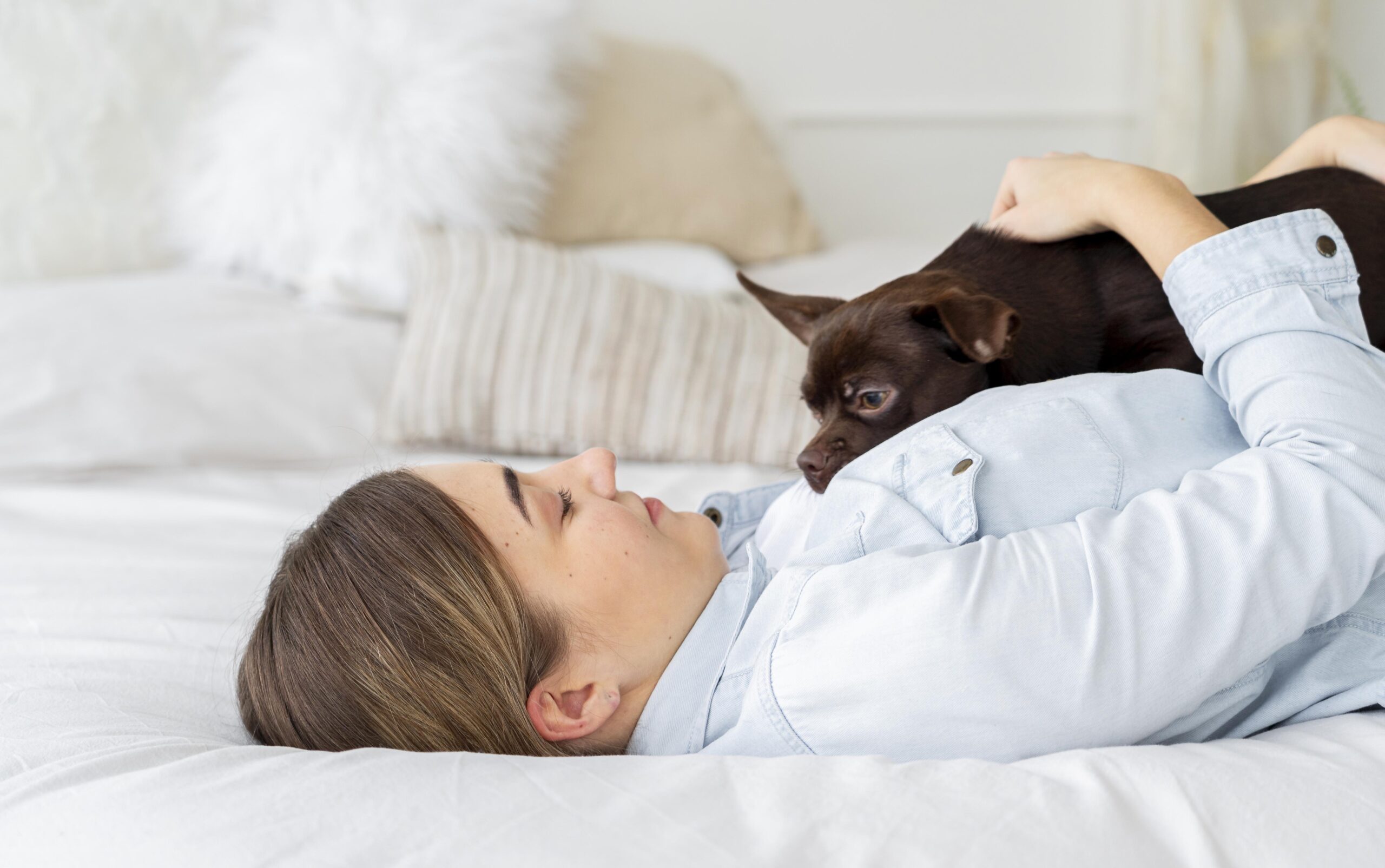
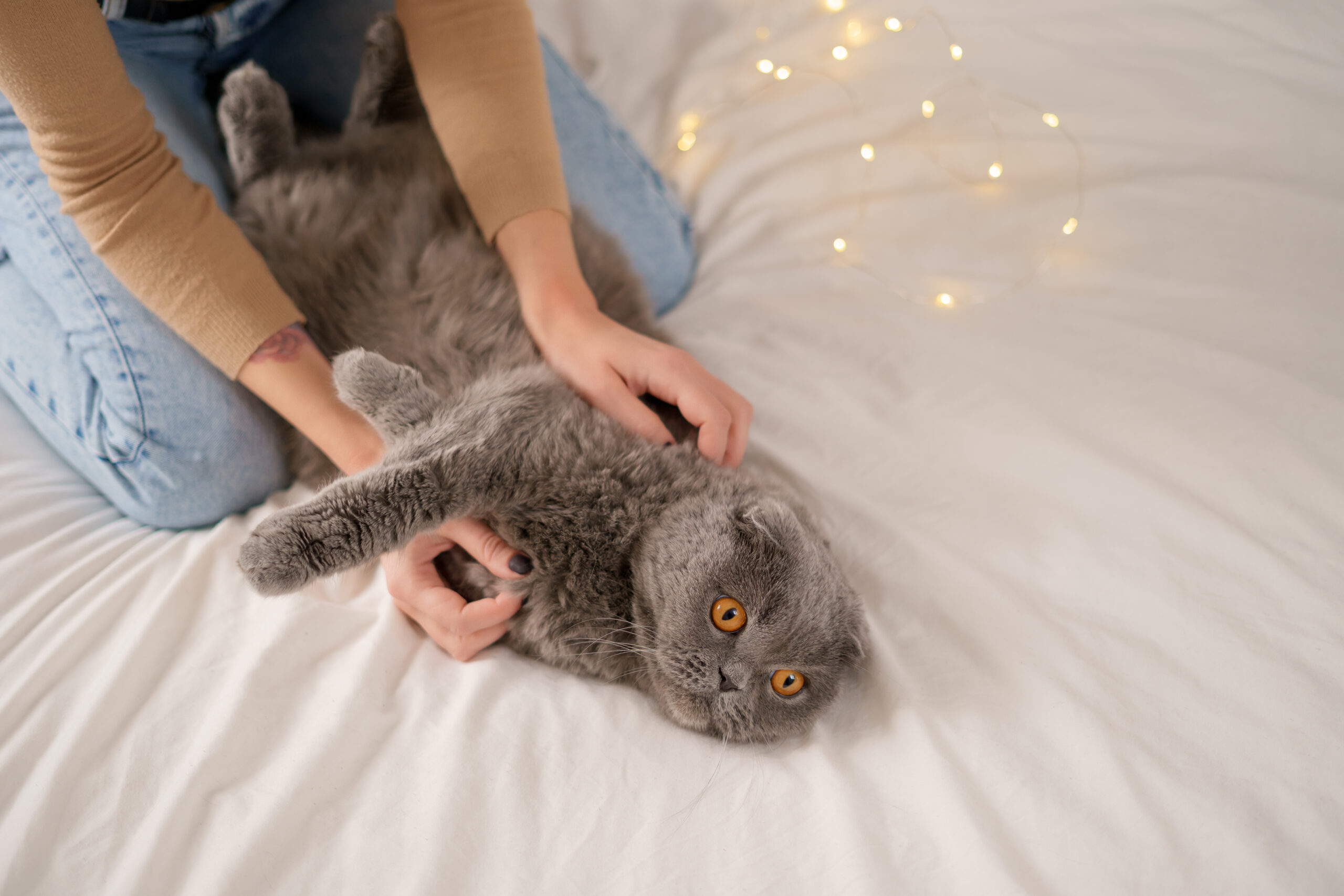
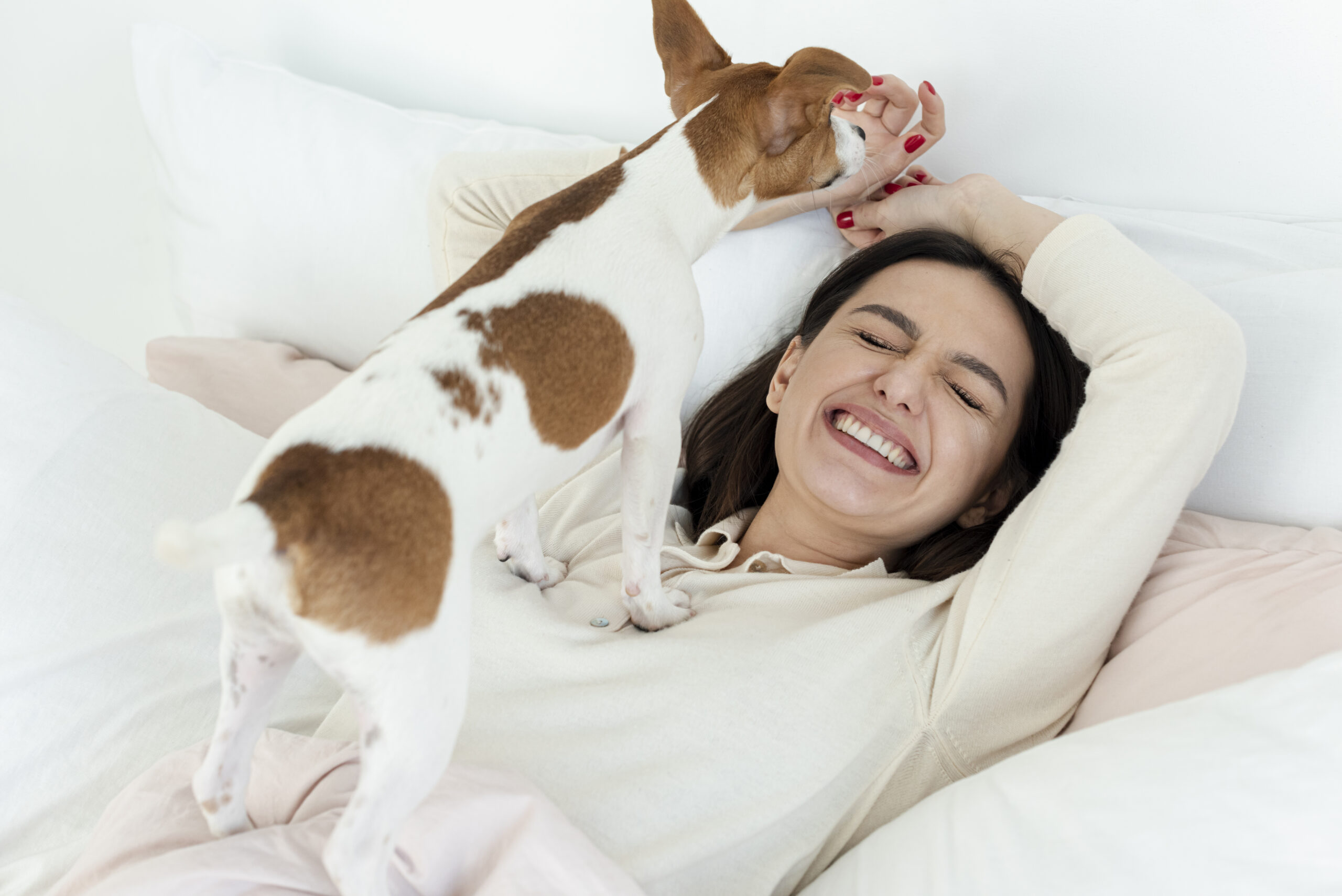
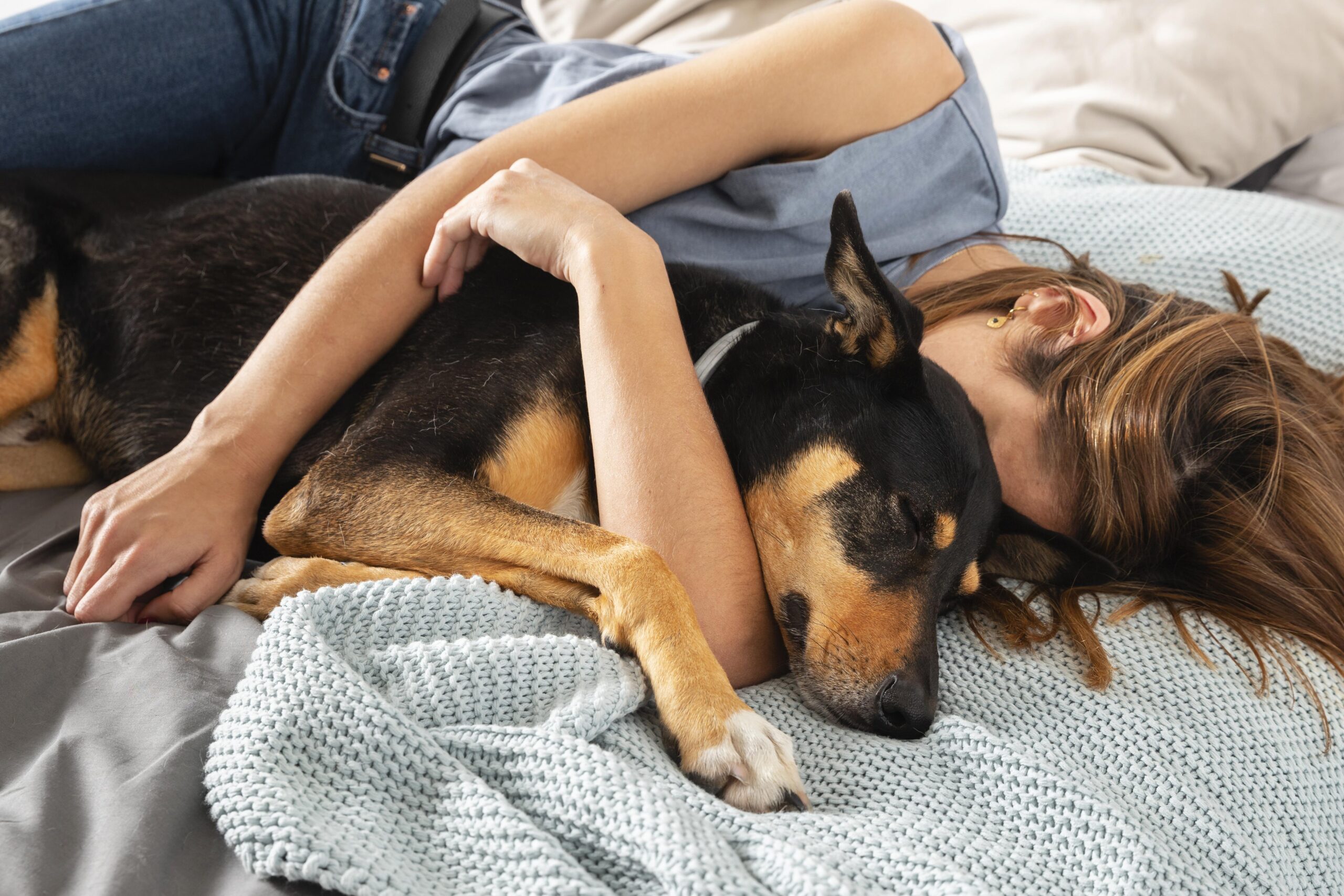
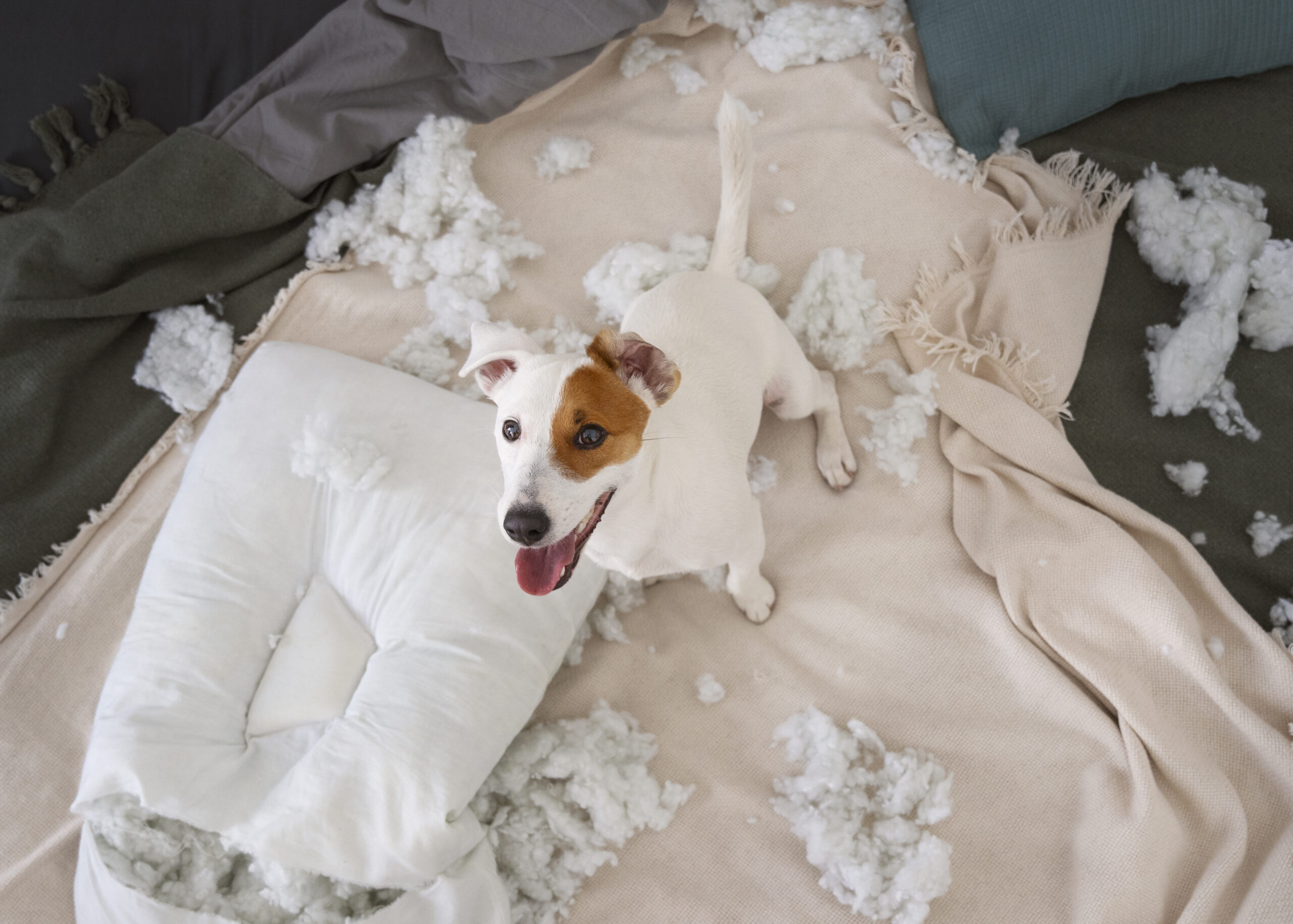
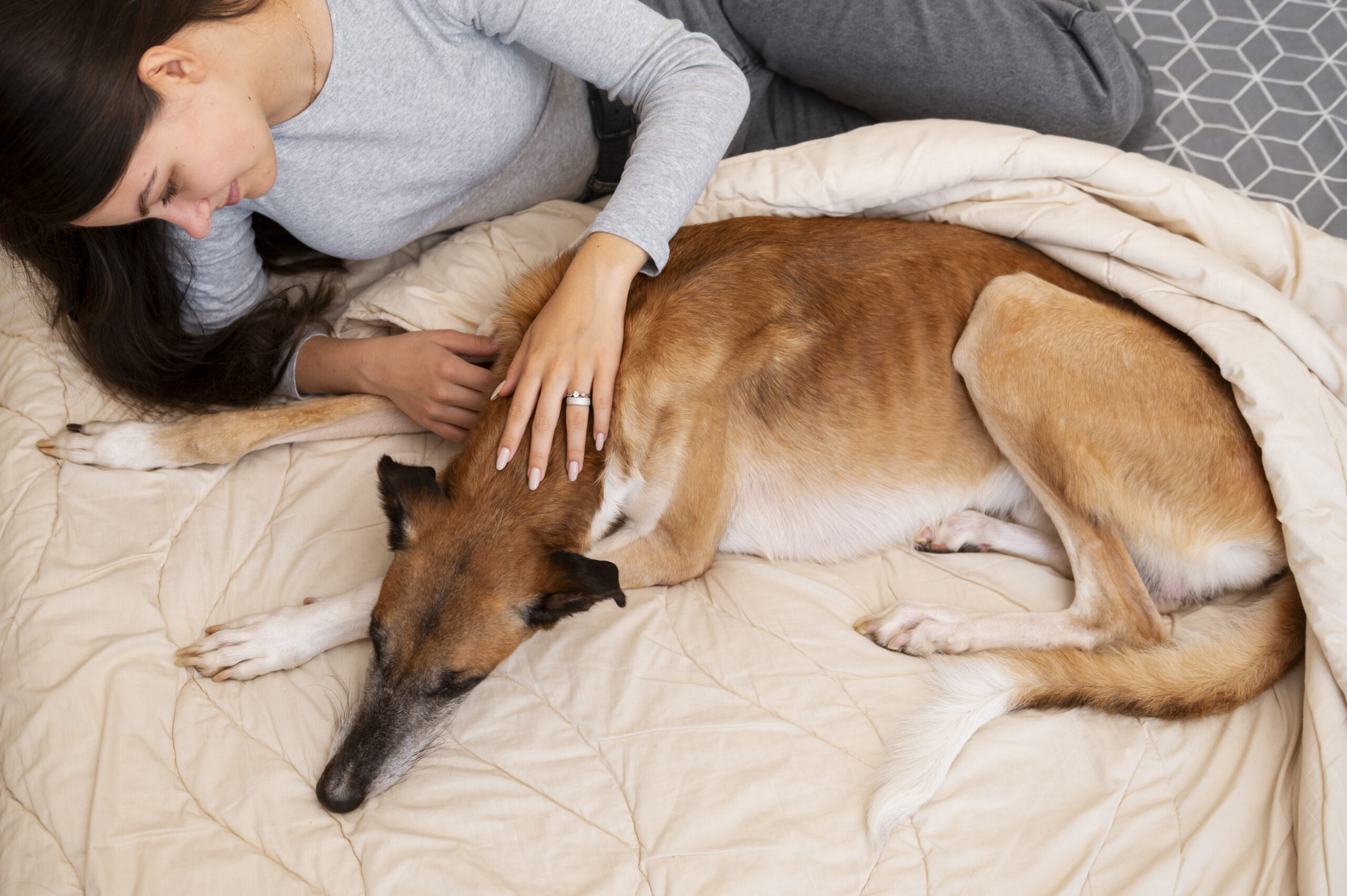
































 JOIN OVER
JOIN OVER
Comments